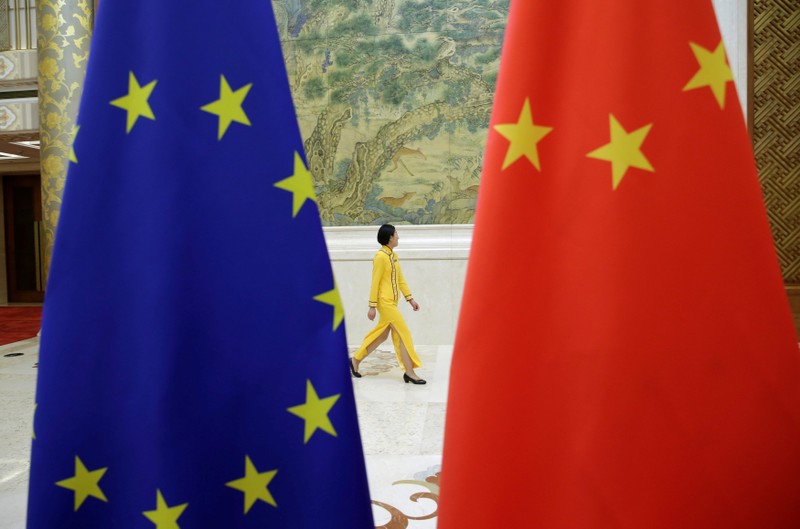
Reuters reports that the European Union will open an annual meeting with China on Monday, and will be looking to fend off overtures for an anti-U.S. alliance as China seeks a European counterbalance to U.S. tariffs. Premier Li Keqiang will host European Council President Donald Tusk and European Commission President Jean-Claude Juncker in Beijing, where the two sides could reinvigorate long-running investment treaty talks with the expected exchange of markets access offers for the first time. The meeting is expected to produce a modest communique affirming the commitment of both sides to the multilateral trading system. Leaders failed to find sufficient consensus for such a joint statement after meetings in 2016 and 2017. This year's talks come with the United States and China increasingly mired in a trade dispute with no sign of negotiations on the horizon. U.S. President Donald Trump has warned he may ultimately impose tariffs on more than $500 billion worth of Chinese goods - nearly the total amount of U.S. imports from China last year. China has sworn to retaliate at each step. European envoys say they have sensed a greater urgency from China since last year to find like-minded countries willing to stand up against Trump's "America First" policies.
BBC reports that the head of US aerospace and defence giant Boeing has warned about potential damage of the growing US-China trade row. "Aerospace thrives on free and open trade," said chief executive Dennis Muilenburg. He said he was concerned tariffs could push up costs for aircraft manufacturers. "The aerospace sector drives economic benefits globally," he added. With both the US and China imposing tariffs on each other's goods, Mr Muilenburg said Boeing wanted to find "alternative solutions" to trade disputes. "We are concerned it could affect supply chain costs - but those supply chains are flowing in both directions [between China and the US], it is an intricate network around the world." Speaking to reporters ahead of this week's Farnborough Airshow, Mr Muilenburg insisted that the White House was listening to his firm's arguments.
- 2018-07-13 China's trade surplus with the US hit a record high in June
- 2018-07-12 China has its currency to use as a weapon in trade war with Trump
- 2018-07-11 Trump readies new tariffs on China
- 2018-07-10 Tesla will build its first factory outside the US in China
- 2018-07-09 China attempts to get closer with Europe after Trump slaps new tariffs on Beijing
- 2018-07-08 Chinese risks to global stability are overblown
- 2018-07-06 China Says U.S. Has Begun 'Largest Trade War' In History, Retaliates With Tariffs
- 2018-07-05 China says U.S. 'opening fire' on world with tariffs, vows to respond
- 2018-07-04 Trump tariff salvo triggers anxiety for US chipmakers
- 2018-07-03 China's big bond experiment is about to go through a rough patch
- Bloomberg Trump Risks Exposing EU-China Rifts More Than Shared Values
- Bloomberg GDP Report Set to Show China's Fitness to Fight the Trade War
- Financial Times China development banks expand links with foreign lenders
- Reuters As China's Q2 GDP growth looks set to cool, trade battle looms as biggest risk
- Reuters Top House Republican urges Trump, China's Xi to meet on trade: Fox
- AXIOS.com Trump adds EU to list of foes, alongside China and Russia
- Reuters China willing to invest $3 billion in Nigerian oil operations: NNPC
- Bloomberg China Bars Foreign Companies, Other Securities From Stock Link
- Wall Street Journal US Stocks Enjoy Haven Status as Trade Spat Dings Other Markets
- www.straitstimes.com China defends policies, says it'll contribute more to global growth
- New York Times 'Doomsday Prepping' for Another Round of Tariffs
- Wall Street Journal How Venezuela Became China's Money Pit
- The Diplomat 'Acquiescence' and the Senkaku Island Debate
- Forbes Duterte Is Rising
- Fortune Who's Winning the US-China Trade War?